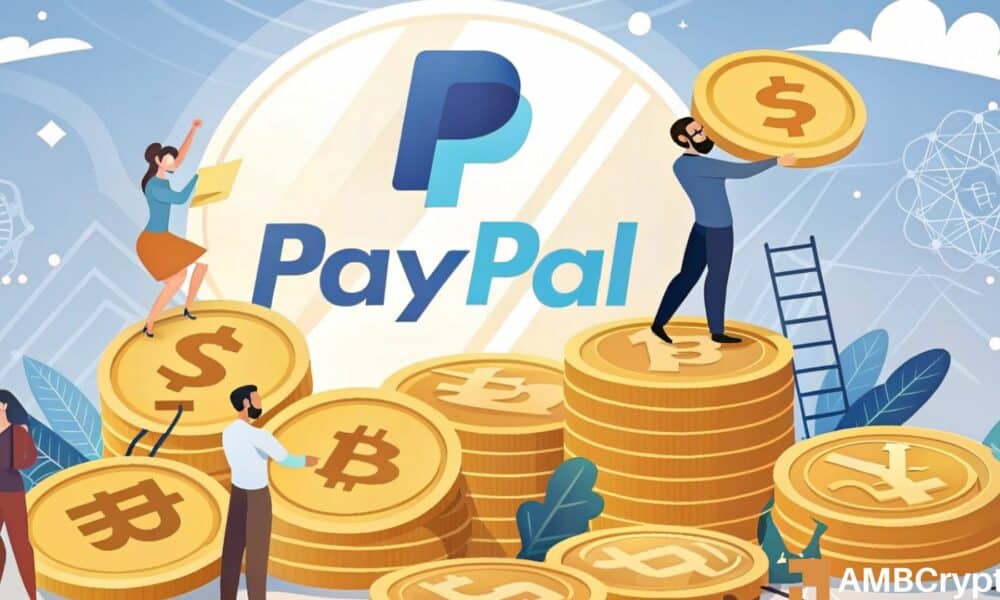PayPal’s Transformation: From Skepticism to Crypto Pioneer
Introduction: The Shift in PayPal’s Stance on Cryptocurrency
PayPal’s journey into the cryptocurrency landscape marks a critical evolution for one of the largest payment platforms globally. Initially viewing cryptocurrencies with skepticism, the company shifted gears in 2020, transitioning into a serious player in the digital currency arena. Faced with increasing competition and the undeniable surge in crypto’s popularity—especially amid the COVID-19 pandemic—PayPal’s strategic transformation offers valuable insights into the future of financial transactions. This article examines PayPal’s advancements in the crypto sector, highlighting significant milestones like the launch of its stablecoin, PYUSD, navigating regulatory landscapes, and addressing potential risks.
The Inception of Crypto Services: A Decisive Move in 2020
PayPal made headlines in October 2020 by enabling U.S. users to buy, hold, and sell major cryptocurrencies such as Bitcoin (BTC), Ethereum (ETH), Litecoin (LTC), and Bitcoin Cash (BCH). This transformation occurred when the crypto market breached $1 trillion, reflecting a growing interest among younger, tech-savvy consumers. Executives recognized that digital currencies were becoming an essential part of modern finance. As competitors like Square made their move, PayPal realized it could no longer afford to sit on the sidelines. By partnering with Paxos Trust Company, a regulated crypto firm, PayPal successfully integrated crypto features while maintaining compliance with financial regulations—a foundational step in its broader strategy.
Innovative Features and Enhanced Utility for Users
PayPal’s commitment to cryptocurrency quickly manifested in the expanded functionality of its platform. By early 2021, users could utilize their crypto balances to make purchases at millions of retailers, with PayPal automatically converting crypto into fiat currency, shielding merchants from market volatility. The introduction of these features extended to Venmo, further capturing a younger demographic. The launch of the PYUSD stablecoin in August 2023 exemplifies PayPal’s ambition to establish an integrated crypto framework, easing digital transactions while bridging the gap between traditional banking and the emerging world of Web3. The subsequent enhancement of its "Pay with Crypto" service to accept over 100 cryptocurrencies exemplifies PayPal’s aggressive outreach into the global commerce ecosystem, markedly improving transaction costs and speeds.
Influencing Public Perception and Market Legitimacy
PayPal’s entry into the cryptocurrency market has shaped how the public perceives digital assets. By providing a familiar and trusted platform for users to engage with crypto, PayPal reduced the barriers to entry typically associated with specialized exchanges. The ease of use and the company’s reputation for security played a pivotal role in demystifying cryptocurrencies. Furthermore, by shielding businesses from volatility, PayPal sent a clear message to other financial institutions about the legitimacy of the crypto market. The successful launch of PYUSD epitomizes this commitment, asserting PayPal’s role in connecting conventional finance with blockchain technology and establishing a new economic paradigm.
Navigating Regulatory Challenges: A Complex Landscape
The path toward adopting cryptocurrency at PayPal has been fraught with regulatory challenges. Operating within a fragmented legal framework, PayPal has had to carefully navigate a variety of existing federal and state regulations in the U.S. and the United Kingdom. In the U.S., the absence of a unified rulebook for crypto necessitated working closely with various watchdog agencies, each with its perspective on how to classify cryptocurrencies. Meanwhile, the UK has been moving toward comprehensive regulation under the oversight of the Financial Conduct Authority (FCA). PayPal’s proactive approach in securing licenses and complying with evolving regulations indicates a commitment to compliance, positioning itself favorably as clearer laws emerge—particularly concerning stablecoins.
Embracing Future Risks and Opportunities in Crypto
Despite its burgeoning role in the crypto space, PayPal faces significant risks. The inherent volatility of cryptocurrency markets poses a continuous threat, as market downturns could damage user trust and undermine revenue generated from trading fees. Moreover, cybersecurity remains a glaring concern; a major breach could lead to significant financial losses and erode public confidence. Critically, the rise of decentralized finance (DeFi) platforms presents an existential challenge. As these technologies enable users to engage in financial services without intermediaries, PayPal’s reliance on transaction processing could face disruption.
The Broader Vision: NFTs, DeFi, and Digital Identity
PayPal’s aspirations extend beyond transactional capabilities, as it explores broader applications of blockchain technology. The company is currently laying the groundwork for integrating non-fungible tokens (NFTs) and DeFi services, aiming to become a comprehensive hub for the Web3 economy. Plans for an NFT marketplace reflect PayPal’s recognition of evolving consumer preferences and its potential to manage diverse digital assets. Additionally, with PYUSD functioning as a cornerstone for DeFi integration, PayPal gears up to compete with established stablecoin entities. In this evolving landscape, PayPal’s investments in digital identity solutions indicate an understanding of the essential need for secure identity verification in a decentralized economy.
Conclusion: PayPal’s Future in the Crypto Landscape
As PayPal continues its journey into the cryptocurrency sphere, the company’s forward-thinking strategies position it uniquely within the fintech industry. By transforming its initial skepticism into a robust commitment to digital assets, PayPal has not only reshaped its service offerings but also contributed to advancing the legitimacy of cryptocurrency in broader financial ecosystems. Through ongoing adaptability and an eye towards innovation amid regulatory complexities, PayPal is poised to play a pivotal role in the continuous evolution of digital payments, offering both challenges and opportunities for stakeholders across the financial spectrum.


